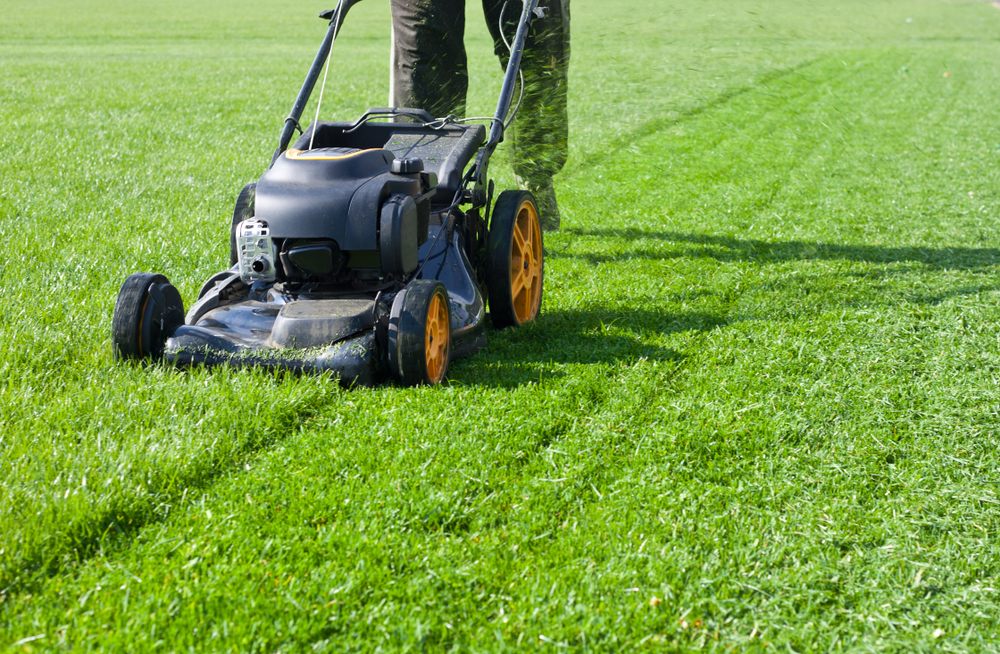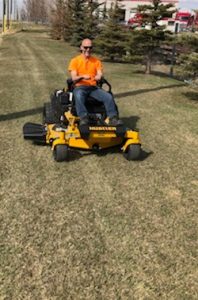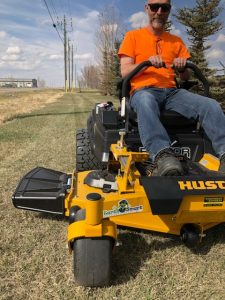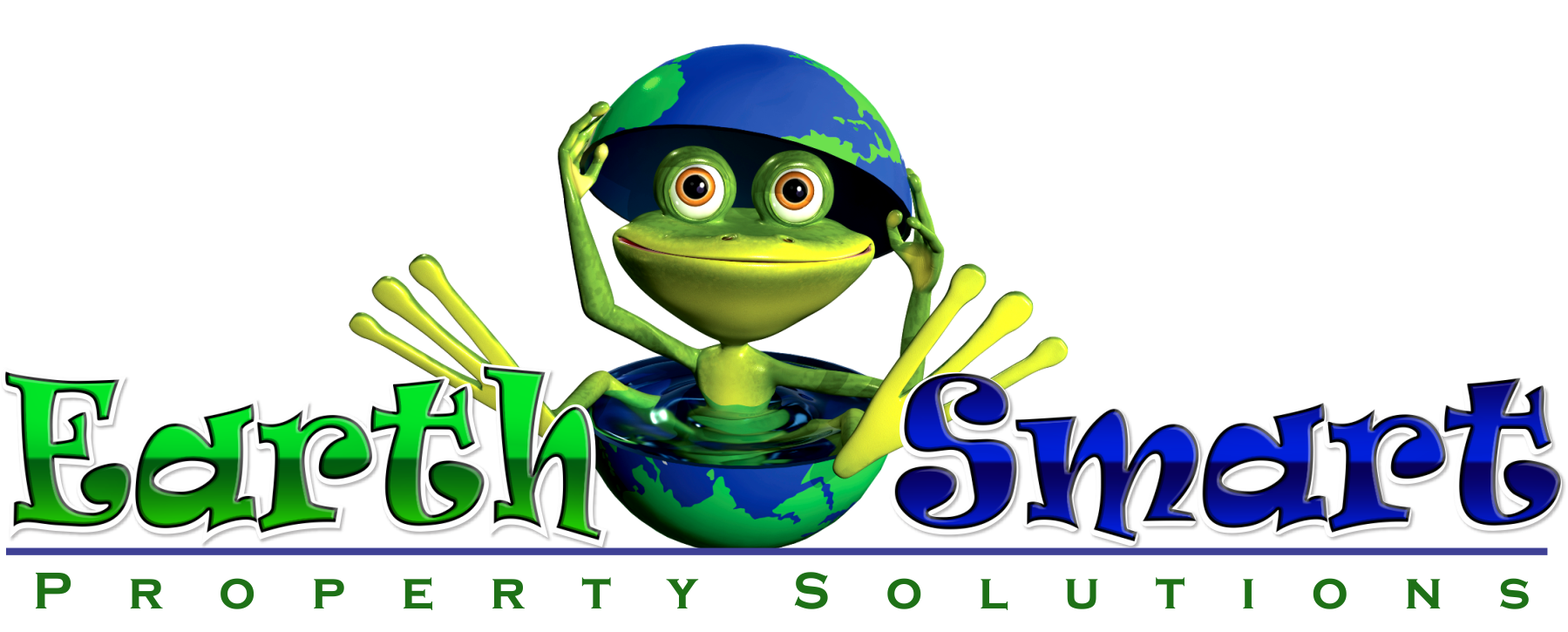
“To bag or not to bag?”
This is a question that many of us face as home owners when it comes time to mow our lawns.
Should we collect the grass clippings and dispose of in a compost pile or green bin (depending on where you live)?
Or should we not bag and use the side discharger on the lawn mower and have the grass clippings disperse on the lawn?
Well there is a third option: mulch the grass.
Not sure what mulching involves? It’s pretty simple, “Instead of collecting grass clippings in a bag, they’re chopped up into tiny pieces and blown down into the base of the turf where they’re decomposed by the bacteria and micro-organisms which live in the soil.” (Source: Garden Seeker)
Not sure what the difference is between grass clippings and mulched grass?
“Mulched grass clippings are the product of specially designed cutting blades and a mower deck baffle system that cuts and recuts grass clippings into super-fine, tiny, highly decomposable grass clipping particles. These particles, which are not discharged or bagged, fall to the lawn bed where they decompose and do several amazing things to make a lawn grow thick and green.” (Source: Ariens)
The benefits of mulching your lawn are extensive.
Benefits of mulching include:
- Grass stores food, moisture and nutrients in its leaves. Mulching your grass recycles these nutrients returning them to your lawn, providing feed to make your grass green and thick. “Mulching grass clippings provides your lawn with 25% of its annual nitrogen requirement.” (Source: Garden Seeker)
- Mulching grass that is returned to decompose in the lawn helps create a healthy lawn that is better able to ward off lawn mold and common lawn diseases.
- Mulching helps improve soil health. As mulch decomposes, nutrients are added back to the soil. “Microorganisms break down grass mulch to release nutrients. Through that digestion process, those microorganisms, like humans and every living thing on planet Earth, generate a waste product. The waste is called humus, which is the dark, organic, carbon-based substance in soil. Humus not only retains lots of water, it retains nutrients like calcium, magnesium and phosphorous, and is a nutrition reserve for the root systems of plants and grass.” (Source: Ariens) Humus helps improve penetration of water, oxygen and nutrients into the soil and can help loosen hard soils.
- A fine layer of mulch covering the soil on your lawn helps keep the temperature of the soil cooler and helps reduce moisture evaporation, during the hot dry months of summer.
- Mulching saves time and extra work by not having to empty the bag on your lawnmower, if collecting grass clippings, or not having to rake if you have a side discharging lawn mower.
- Mulching reduces the build up of thatch on your lawn. To learn more about thatch, check out this blog from our sister company, “Lawn Thatch – The Good, The Bad & The Ugly“. Mulched grass, which is cut extremely fine, compared to regular grass clipping, decomposes easily, not turning into hatch. “Fresh, organic matter causes a spike in microbial activity which is essential in the breakdown and control of lawn thatch.” (Source: Garden Seeker) Plus, “the microorganism-rich environment stimulated by higher levels of grass mulch creates greater populations of hungry microbes that chomp away at existing thatch.” (Source: Ariens)
- Mulching helps reduce waste at landfills.
If you do decide to mulch, there some things to keep in mind.
Tips When Mulching
- Mulch Dry Grass Only – Only mulch grass when it is dry to reduce clumping.
- Don’t Mulch in Spring – Consider mulching only in summer and fall as grass grows at a faster rate in the spring and is juicier. “The rate of grass growth and more frequent mowing in the spring may outpace the ability for mulched clippings to decompose, leading to clumping and increased thatch: the opposite of the desired effect.” (Source: Ariens)
- Maintain Mower – Be sure to clean the mower deck regularly and keep the mulching blades sharpened.
- Only Mulch If You Don’t Have Lots of Weeds – Don’t mulch if you have lots of weeds in your lawn, as mulching will simply spread the seeds from the weeds.
- Don’t Mulch If Grass is Long – Don’t mulch if your lawn is over grown.
- Clippings may not break down effectively in a conventionally maintained lawn if there has been repeated use of chemical pesticides and synthetic fertilizers. For example, insecticides for grub prevention can kill much more than the target pest and can render a lawn almost lifeless. Synthetic fertilizers increase the salts present in the soil which can also reduce soil biology. A lack of microbial activity and earthworms may inhibit the amount of decomposition necessary to break down lawn clippings.” (Source: The Spruce)
You can convert almost any lawn mower to mulch your grass by installing a mulch kit underneath, composed of mulching blades and deck baffles. “Special “mulching” blades with extra cutting surfaces are used in conjunction with added baffling underneath the mower. The output or chute is blocked to trap the clippings underneath the deck. The baffling helps move the clippings around within the mowing chamber and allows them to be cut multiple times and blown down into the surface of the lawn.” (Source: The Spruce)
At Earth Smart Property Solutions we have recently invested in a new Hustler lawn mower that mulches grass. It is perfect for mowing large acreages, commercial properties and residential yards.


If you have any questions about caring for your lawn, please contact us and our experienced team will do our best to answer any questions that you may have.
Sources:
Ariens, “Benefits of Grass Mulching”
The Spruce, “Mulching Grass Clippings Back Into the Lawn”
Garden Seeker, “How Mulching Grass Improves Your Lawn and When NOT to Mulch”

2 Comments